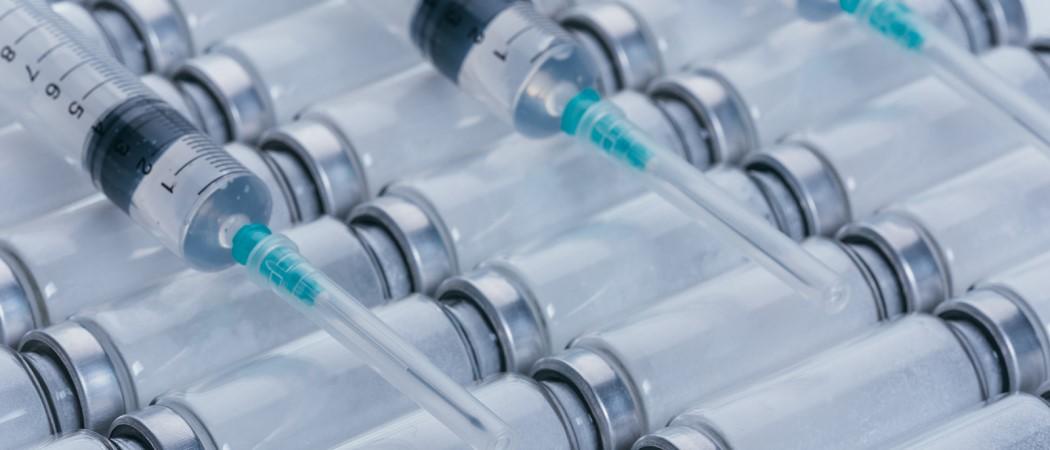Amid pressure to speed up vaccination programmes some member states are starting to go their own way on securing doses. The EU’s head vaccine official says no country can jump the queue

The EU’s chief vaccine negotiator on Tuesday said member states could not jump to the head of the vaccines queue by securing doses with pharma companies bilaterally.
“Our doses come first,” Sandra Gallina, director general of the Commission’s health directorate and head of vaccine procurement, told MEPs during a special committee hearing.
Gallina confirmed any new orders would be delivered only after member states are supplied under EU deals. “Every vial is booked for a country. Now it’s a bit too late to go around buying doses,” she said.
The EU has agreed to allocate coronavirus vaccines pro rata by population, and for member states not to approach vaccine makers individually. However, this strategy is apparently fraying, amid unease over supply shortages and the slow rollout, with some countries saying they will make their own inquiries with pharma companies.
Germany is getting 50 million additional BioNTech/Pfizer and CureVac doses in its own bilateral deals, while Cyprus is going to neighbouring Israel for more vaccines, Cypriot president Nicos Anastasiades told Politis journal in an interview.
These moves have left EU officials on the defensive, with Gallina denying accusations from MEPs that the bloc did not order enough vaccine doses for everyone. “We went very far with the quantities, and we bought all that could be bought,” she said.
The Italian official promised a massive vaccine rollout in Europe from April. Early supply is “not as abundant as many would like,” she admitted, after MEPs complained that the EU trails global pacesetters like the UK and Israel.
“There’s some teething problems, but they’re coming. Quarter two is going to be the one with many doses,” Gallina added.
The largest quantities of vaccines are expected during the second quarter of 2021, as already agreed in the existing contracts. The Commission pointedly noted that it is up to member states to set up and organise vaccination programmes and that centralised procurement has not prevented Denmark from getting vaccines out quickly, with the country shading the UK on a per capita rollout.
As of next week, a dedicated platform will be available where member states can report, twice a week, the number of vaccines received and used. Faced with complaints about lack of transparency, a reading room has been set up for MEPs to review vaccine contracts. Only one contract, that with Curevac, is currently available, with others to be released pending the agreement of pharmaceutical companies.
Faltering start
The Commission has negotiated with vaccine makers on behalf of the 27 member states, securing contracts to provide up to two billion doses of potential vaccines with seven different producers.
But the EU executive has found itself under heavy criticism, amid frustration over the faltering start to the inoculation campaign for the 450 million people who live in the EU.
Following outrage over this sluggishness in Germany, the EU last week said it had booked 300 million more BioNTech/Pfizer doses, on top of 300 million already ordered.
The vaccine, developed in a joint US-German venture, was the first of two to be approved for use so far in the EU, and the first to be used in the EU inoculation drive that started in late December. The other approved vaccine is from US biotech Moderna, of which the EU has ordered 160 million doses.
MEPs quizzed Gallina on whether the bloc had spread its bets too widely, and whether there was pressure from countries like France to procure from particular vaccine makers. That is nod towards the Sanofi vaccine, which last month hit a roadblock, when early trials showed it was not effective in producing a strong immune response in elderly people. Sanofi is reformulating the product and due to start a phase IIb trial next month, meaning approval is some way off.
Gallina denied that there has been any political favour shown to any manufacturer. “The member states [collectively] chose the portfolio,” she said.
Pressed on why the EU did not buy more doses, Gallina pointed out that the EU was quicker than the US in securing BioNTech/Pfizer doses. “We bought [an initial] 200 million [of Pfizer] when the US bought 100 million,” she said.
The EU says it has plenty of doses from the two currently approved vaccines alone to vaccinate 380 million Europeans, equating to more than 80% of the EU population.
The European Medicines Agency announced today that it received an application from AstraZeneca for approval of the vaccine developed jointly with Oxford University, which is being used in the mass rollout of vaccinations that began in the UK on Monday. EMA said it will decide whether to approve the AstraZeneca product, or not, on 29 January.
Health officials say this particular vaccine will help speed up inoculation because, unlike the BioNTech/Pfizer jab, it doesn’t need to be stored at minus 70 degrees.





 A unique international forum for public research organisations and companies to connect their external engagement with strategic interests around their R&D system.
A unique international forum for public research organisations and companies to connect their external engagement with strategic interests around their R&D system.